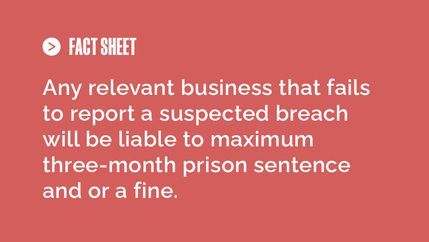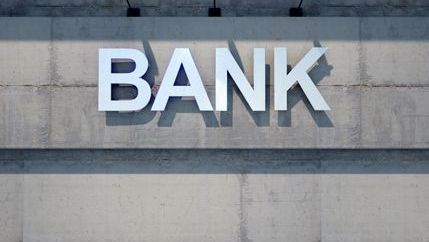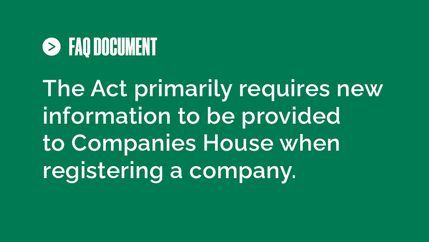A stark warning on property fraud as man regains possession of stolen home
Fraudsters exploited the vulnerabilities in the property transaction system by stealing a homeowner’s identity and using a fake driving license to set up a bank account in his name to facilitate a sale in 2021. After four years, on 11 March 2025, a County Court finally granted the owner full possession of his home.
Lettings Spotlight: financial sanctions reporting obligations
Letting agency businesses across the UK need to work to a new framework from 14 May 2025 under the Sanctions and Anti-Money Laundering Act 2018, and it is vital that every agent understands the rules and adjusts working practices and systems accordingly. Through our vast network of members, some confusion has been highlighted around the rules, and we have produced resources to navigate the requirements.
Fact sheet: Writing a risk assessment
Under the Money Laundering, Terrorist Financing and Transfer of Funds (Information on the Payer) Regulations 2017 (the MLRs) all Estate Agency Businesses and Letting Agency Businesses with properties that have a monthly rent that is the equivalent to 10,000 Euros or more, must produce a risk assessment.
Fact sheet: UK sanctions reporting obligations
Under the Sanctions and Anti-Money Laundering Act 2018, the UK Government introduced a new regime of issuing financial sanctions following the UK’s departure from the European Union. Under the Act, businesses specified in the Act have to report to the OFSI if they suspect they are engaging with a client who is under financial sanctions.
AML registration failures place hundreds of agents and auctioneers in jeopardy
The most recent compliance and registration penalties published by HM Revenue and Customs reveal 144 agents sanctioned between October and December 2023. Most fines were for failing to register at the required time, and the amounts ranged from £1,250 to £52,000. However, the largest fine on the list is for a High Value Dealer ordered to pay £175,701 for multiple failures in carrying out risk assessments, having the correct policies, controls and procedures, appropriate staff training, conducting due diligence, and record keeping.
Economic Crime Act: new guidance for agents on information sharing
The Department for Business and Trade (DBT) has published in-depth advice for anti-money laundering (AML) regulated firms to explain the legal protections around sharing client data. The Economic Crime and Corporate Transparency (ECCT) Act 2023 introduced provisions that allow businesses to tackle AML by voluntarily sharing and receiving information, however, agents have raised concerns that they may be liable for breaches of confidentiality.
Fears that suspicious payment powers could delay property transactions
From the end of October 2024, UK banks will be able to hold payments for up to four days whilst investigations of potential fraud are carried out, raising concerns that the large transactions needed for property purchases may be incorrectly blocked. The change follows stricter rules on fraud compensation which came into force on 7 October 2024, meaning that banks must refund scam victims up to £85,000 within five days.
Anti-Money Laundering registration – consequences of non-compliance
In April 2024, HMRC announced fines of over £1.6 million for agents found to have committed various breaches, and we are concerned that agents, including some Propertymark members, may be incorrectly applying, failing to apply or not maintaining an accurate and up-to-date registration with HMRC.
Sector-specific guidance would give agents confidence to fight money laundering
Propertymark has responded to the HM Treasury consultation on improving the effectiveness of the Money Laundering Regulations (MLR), drawing on member survey data to illustrate the current challenges for agents and how targeted improvements could enhance the system.
Labour's Lammy sets sights on tackling financial crime
In a keynote speech at a conference held by the Institute for Public Policy Research (IPPR) on 21 May 2024, Shadow Foreign Secretary David Lammy MP, announced policies to combat corruption, including increased registration requirements for trusts which are widely used to disguise the ownership of assets such as property.
Ending two-tier AML system would close gaps in sector defences
In a letter to the Chancellor of the Exchequer, Propertymark has again laid out the benefits of extending full anti-money laundering (AML) supervision to all letting agents, including improved compliance with Money Laundering Regulations (MLRs) and solving the ongoing issue with access to pooled client accounts which has hampered agents for far too long.
Over 250 agents fined for AML non-compliance
HM Revenue and Customs (HMRC) has announced that fines totalling over £1.6 million have been issued for a variety of breaches including missing documentation, incomplete due diligence, and failures to recognise specific risks, such as Politically Exposed Persons, high risk jurisdictions, companies, trusts and sanctions.
Propertymark has authoritative voice on UK money-laundering risk
Every two years, the European Commission assesses the risks of money laundering and terrorist financing affecting both the EU internal market and cross-border activities. As a member of CEPI, the European Association of Real Estate Professionals, we work with them to provide the perspective of the UK market.
Economic Crime levy to increase after income target missed
Very large property agencies, based on their UK revenue, will see contributions to the Levy double from April 2024 after receipts for the period April 2022 to March 2023 showed a shortfall against the target of raising £100 million per year, which is used as long-term sustainable funding to tackle economic crime.
Propertymark lobbying leads to hope for pooled client account access
A consultation launched by HM Treasury could be the catalyst for change in the Money Laundering and Terrorist Financing (Amendment) Regulations 2019 and end the ongoing problem of access to appropriate banking services for letting agents, which is the result of banks failing to properly understand how client money protection and anti-money laundering apply to unregulated firms.
FAQs: Economic Crime and Corporate Transparency Act 2023
After the invasion of Ukraine, the UK Government took steps to address growing concerns of money laundering and other economic crime from Russian and foreign entities operating in the UK or with UK companies. This led to the introduction of the Economic Crime (Transparency and Enforcement) Act in March 2022.















